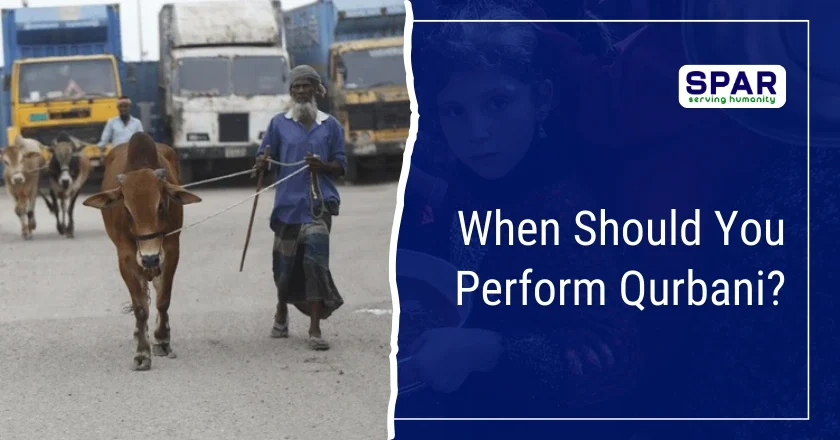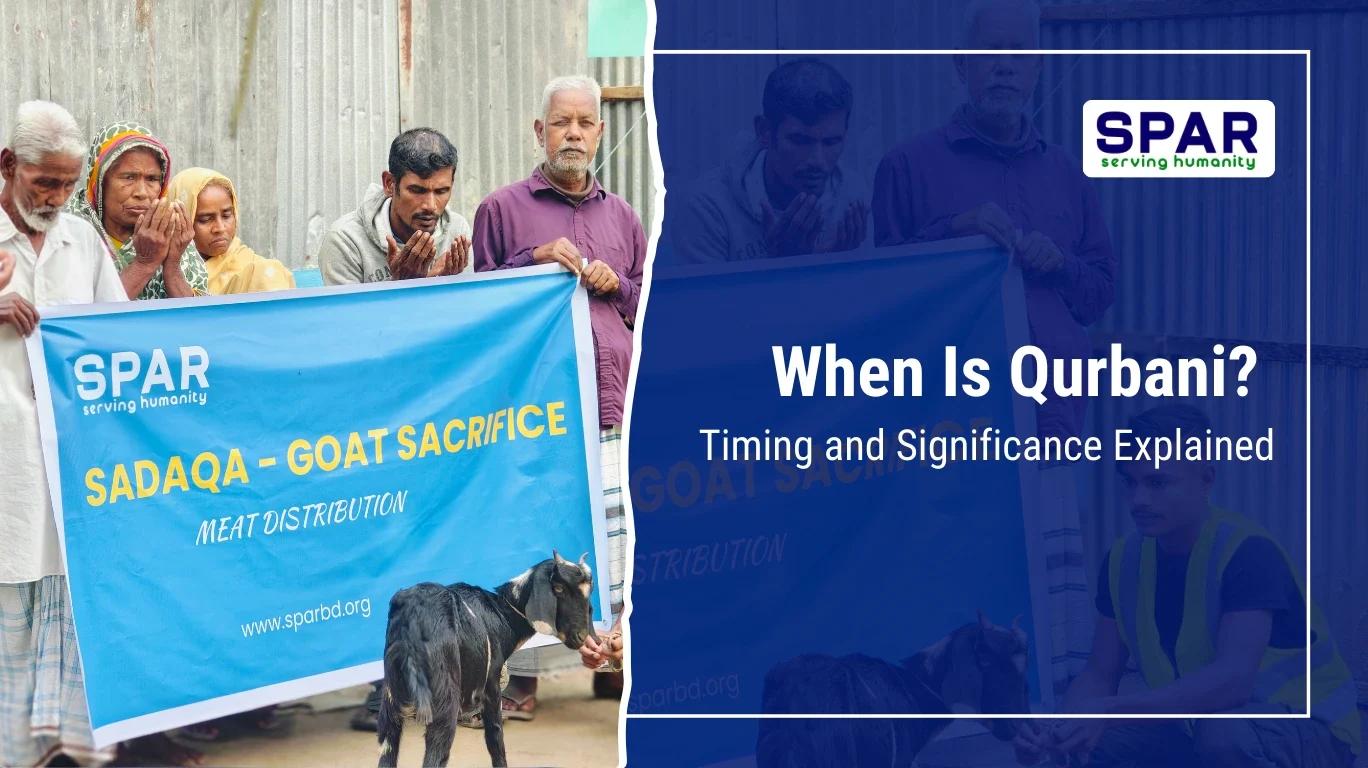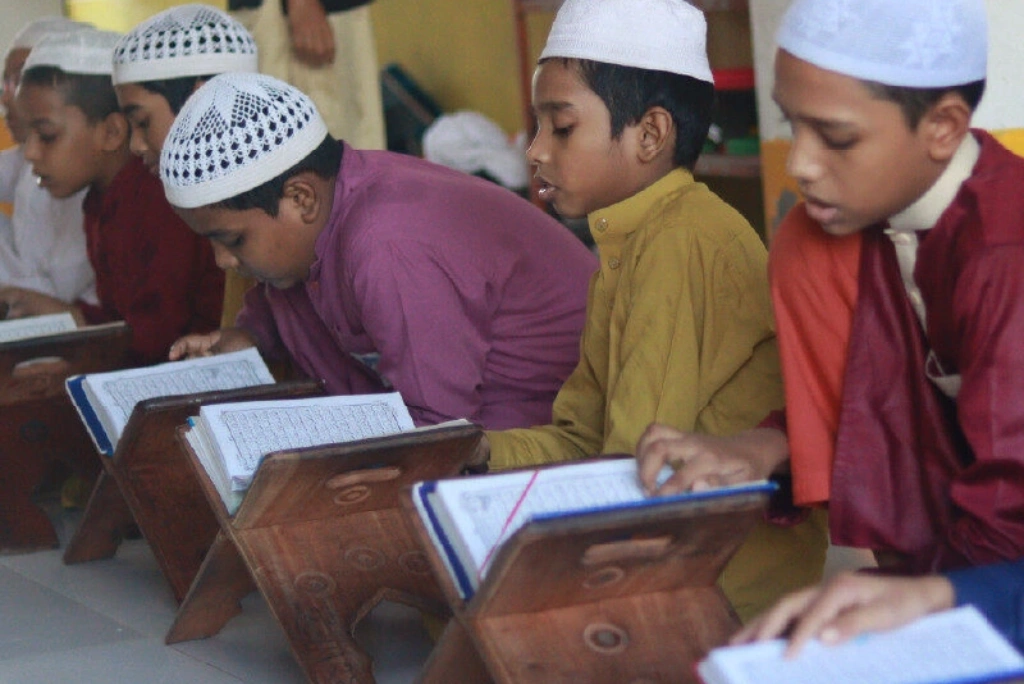When Is Qurbani? Understanding the Timing and Significance
Qurbani, otherwise known as Udhiyah, is a fundamental ritual in Islam. It reminds Muslims of the sacrifice made by Prophet Ibrahim (Abraham), who was prepared to sacrifice his son Ismail (Ishmael) as an act of obedience to Allah. But when is Qurbani? As Eid al-Adha approaches, many Muslims are asking this question.
In this guide, we’ll tell you when Qurbani is, its importance and how and when you can perform it. This post will provide you with everything you need to know, whether you are new to Qurbani or simply want to learn more about it.
What Is Qurbani?
Now, before answering the question, “When is Qurbani?” let us understand what it is. Qurbani is the sacrifice of either a goat, sheep, cow, or camel. It is carried out during Eid al-Adha. It signifies the readiness of Prophet Ibrahim to sacrifice his son at Allah’s instruction. But Allah provided a ram to sacrifice instead of Ismail.
The animal’s meat is distributed in three ways: a third is given to the needy, another third is given to friends and family, and the last part is kept by the person who sacrificed. It is an act of charity, devotion to God, and local solidarity.
When Is Qurbani?
The timing of Qurbani is tied directly to the Islamic holiday of Eid al-Adha. Eid al-Adha falls on the 10th of Dhul-Hijjah, the 12th month of the Islamic lunar calendar. Qurbani can only be performed between the 10th and the 12th of Dhul-Hijjah.
Here’s how the timing breaks down:
- 10th of Dhul-Hijjah: The first day of Eid and the best day to perform Qurbani.
- 11th of Dhul-Hijjah: Qurbani can still be performed on the second day of Eid.
- 12th of Dhul-Hijjah: This is the last day for Qurbani. It must be done before sunset on this day.
It’s important to note that the Qurbani should be performed after the Eid prayer, which takes place in the morning on the 10th of Dhul-Hijjah.
Why Is Qurbani Important?
Qurbani is a symbolic tribute to Prophet Ibrahim. Allah asked Ibrahim to sacrifice his son, and so he obeyed without question. And so, out of Allah’s mercy, He replaced Ismail with a ram.
Qurbani for Muslims is obedience, charity, and submission to Allah’s will. It also teaches self-sacrifice and giving. To aid the less fortunate during Eid, Muslims donate the meat to those in need.
Who Should Perform Qurbani?
Qurbani is farz (compulsory) upon every Muslim who is:
- Financial Capability: The individual should possess sufficient wealth to withstand the sacrifice and sustain their necessities. If you can meet the expense of it, it is compulsory to perform Qurbani.
- The Islamic Jurisprudence regarding Qurbani: Maturity: Qurbani is obligatory on Muslims who have reached the age of maturity (puberty). It does not have to be performed by children.
- Fasting in Ramadan: The practice of Qurbani is associated with the observance of fasting in Ramadan. If you’ve gone through the fast of Ramadan and can afford it, you are expected to offer Qurbani.
People who can’t afford Qurbani are absolved from doing so. Instead, they are encouraged to donate during Eid in other ways.
How to Perform Qurbani
There are a few essential steps when it comes to performing the Qurbani. Here’s how to do it:
- Choose the Animal: The animal must be healthy, without defects, and meet age specifications. You can choose a goat, a sheep, a cow, or a camel.
- Let the Intention (Niyyah): Before performing the slaughter of the animal, make a Niyyah in your heart that you are slaughtering the sacrifice for the sake of Allah. These do not need any specific words.
- The Process of Slaughtering the Animal: Islamic requirements mandate that the slaughtering process must be done in a very kind and humane way.
- Split the Meat: Break the meat into thirds:
- A third for those in difficulty.
- A third for your family and friends.
- Take one-third for yourself.

When Should You Perform Qurbani?
It should be noted that the most virtuous time to perform Qurbani is on the 10th of Dhul-Hijjah. It is the first day of Eid al-Adha. Qurbani can also be performed on the 11th and 12th of Dhul-Hijjah. However, the slaughter needs to be finished by the 12th’s sunset.
- Eid Prayer: Offer the Eid prayer on the 10th of Dhul-Hijjah and ensure to perform Qurbani. It will not count as valid if you do it before.”
- Hurry: Although performing Qurbani on the 10th day is recommended more due to its high reward.
The Meaning of Qurbani in Islam
Qurbani is not just an action of slaughtering an animal. It is about surrendering to Allah’s will, obedience and charity. Muslims pay tribute to Allah through Qurbani, giving something precious for his sake. Giving to the poor is also important because it strengthens the bond in the community.
What Should You Know About the Animal for Qurbani?
It is essential to decide on the animal for Qurbani. Here are the requirements:
- Age: The animal must be the right age. For goats and sheep, it needs to be at least a year old. In the case of cows, it should be aged at least two years, while it should be aged at least five years in the case of camels.
- Health: The animal must be healthy and without defects. Keep in mind that the animal should neither be sick nor injured, as such, an animal cannot be used for Qurbani. Please note that ill or injured animals cannot be used for Qurbani.
Choosing an animal that meets these criteria is imperative to ensure the validity of your Qurbani.
Can You Perform Qurbani for Someone Else?
Yes, you can perform Qurbani for anyone, including the deceased family. If they are no longer living, you can do so as an act of charity on behalf of the deceased.
- Intention: If When you perform any Qurbani for someone else, you should be clear in your intention and do it for that person’s sake.
Conclusion
Qurbani is a worshipful act that facilitates reflection on behalf of Muslims about obedience, charity, and gratitude. Knowing when Qurbani is and how to perform it correctly helps you ensure that you discharge this religious obligation in the best possible way. Whether doing it for yourself or on behalf of someone else, Qurbani is a way to strengthen community ties and remember the blessings Allah has bestowed upon us.
When is the time for Qurbani?
The best time is on the 10th of Dhul-Hijjah (the first day of Eid al-Adha), but you can also do it on the 11th or 12th.
Do you do Qurbani before the Eid prayer?
No, Qurbani is to be done on the 10th of Dhul-Hijjah, after the Eid prayer.
Can I do Qurbani on behalf of another?
Yes, it is possible to perform the Qurbani for a deceased person or someone who is incapable of doing so.
Qurbani days are specific days that you cannot do.
Is Qurbani valid for the year if you forget the 10th, 11th, or 12th of Dhul-Hijjah? But you can still donate to charity.
Is Qurbani Fared on everyone?
Qurbani is performed by Muslims who can afford it and have attained puberty.
What If I Can’t Afford Qurbani?
You are excused if you are unable to afford Qurbani. Eid al-Adha: We still encourage you to engage in other forms of charity.
Is it permissible to donate money instead of performing Qurbani?
The essence of Qurbani lies in the actual sacrifice of an animal. You can’t pay with money, but you can use it to help those in need.




 Secure
donation
Secure
donation